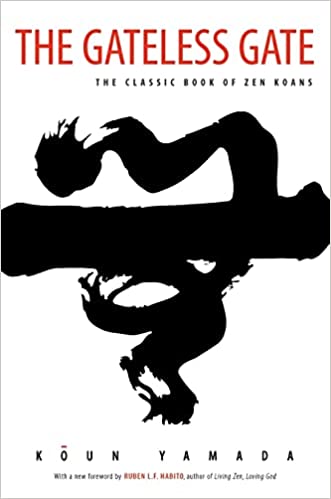Tao Te Ching by Lao Tzu
Chapter 43
"The softest of stuff in the world
Penetrates quickly the hardest;
Insubstantial, it enters
Where no room is.
By this I know the benefit
Of something done by quiet being;
In all the world but few can know
Accomplishment apart from work,
Instruction when no words are used."
- Translated by Raymond B. Blakney, 1955, Chapter 43
"As the soft yield of water cleaves obstinate stone,
So to yield with life solves the insoluble:
To yield, I have learned, is to come back again.
But this unworded lesson,
This easy example,
Is lost upon men."
- Translated by Witter Bynner, 1944, Chapter 43
"That which offers no resistance,
overcomes the hardest substances.
That which offers no resistance
can enter where there is no space.
Few in the world can comprehend
the teaching without words,
or understand the value of non-action."
- Translated by John H. McDonald, 1996, Chapter 43
天下之至柔, 馳騁天下之至堅.
無有入無間.
吾是以知無為之有益.
不言之教.
無為之益, 天下希及之.
- Chinese characters, Tao Te Ching Chapter 43
t'ien hsia chih chih jou, ch'ih ch'êng t'ien hsia chih chih chien.
wu yu ju wu chien.
wu shih yi chih wu wei chih yu yi.
pu yen chih chiao.
wu wei chih yi, t'ien hsia hsi chi chih.
- Wade-Giles Romanization, Tao Te Ching, Chapter 43
"The softest substance of the world
Goes through the hardest.
That-which-is-without-form penetrates that-which-has-no-crevice;
Through this I know the benefit of taking no action.
The teaching without words
And the benefit of taking no action
Are without compare in the universe."
- Translated by Lin Yutang, 1955, Chapter 43
"The softest thing in the world can overcome the hardest.
The shapeless can penetrate the seamless.
Thus I know the value of not acting.
Few understand the wordless teaching of non-action."
- Translated by Ned Ludd, Chapter 43
"The world’s weakest drives the world’s strongest.
The indiscernible penetrates where there are no crevices.
From this I perceive the advantage of non-action.
Few indeed in the world realize the instruction of the silence, or the benefits of inaction."
- Translated by C. Spurgeon Medhurst, 1905, Chapter 43
"Lo más blando del mundo
vence a lo más duro.
La nada penetra donde no hay resquicio.
Por esto conozco la utilidad del no-interferir.
Pocas cosas bajo el cielo son tan instructivas como las lecciones del silencio,
o tan beneficiosas como los frutos del no-interferir.
Pocos en el mundo llegan a comprenderlo."
- Translation from Wikisource, 2013, Capitulo 43
"The non-existent can enter into the impenetrable.
By this I know that non-action is useful.
Teaching without words, utility without action-
Few in the world have come to this."
- Translated by Ch'u Ta-Kao, 1904, Chapter 43
"What is of all things most yielding
Can overwhelm that which is of all things most hard.
Being substanceless it can enter even where is no space;
That is how I know the value of action that is actionless.
But that there can be teaching without words,
Value in action that is actionless,
Few indeed can understand."
- Translated by Arthur Waley, 1934, Chapter 43
A typical webpage created by Mike Garofalo for each one of the 81 Chapters (Verses, Sections) of the Tao Te Ching (Daodejing) by Lao Tzu (Laozi) includes over 25 different English language translations or interpolations for that Chapter, 5 Spanish language translations for that Chapter, the Chinese characters for that Chapter, the Wade-Giles and Hanyu Pinyin transliterations (Romanization) of the Mandarin Chinese words for that Chapter, and 2 German and 1 French translation of that Chapter. Each webpage includes a Google Translate option menu for reading the entire webpage in many other languages. Each webpage for each one of the 81 Chapters of the Tao Te Ching [246 CE Wang Bi version] includes extensive indexing by key words, phrases, and terms (concordance) for that Chapter in English, Spanish, and the Wade-Giles Romanization. Each webpage on a Chapter of the Daodejing includes recommended reading in books and websites, a detailed bibliography, some commentary, links, research leads, translator sources, and other resources for that Chapter.
Chapter and Thematic Index (Concordance) to the Tao Te Ching by Lao Tzu
English Language Daodejing Translators' Source Index
Spanish Language Daodejing Translators' Source Index
Ripening Peaches: Taoist Studies and Practices
Taoism: A Selected Reading List
















